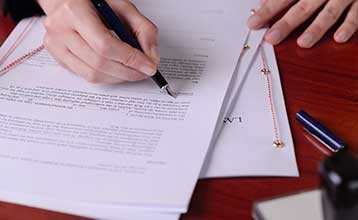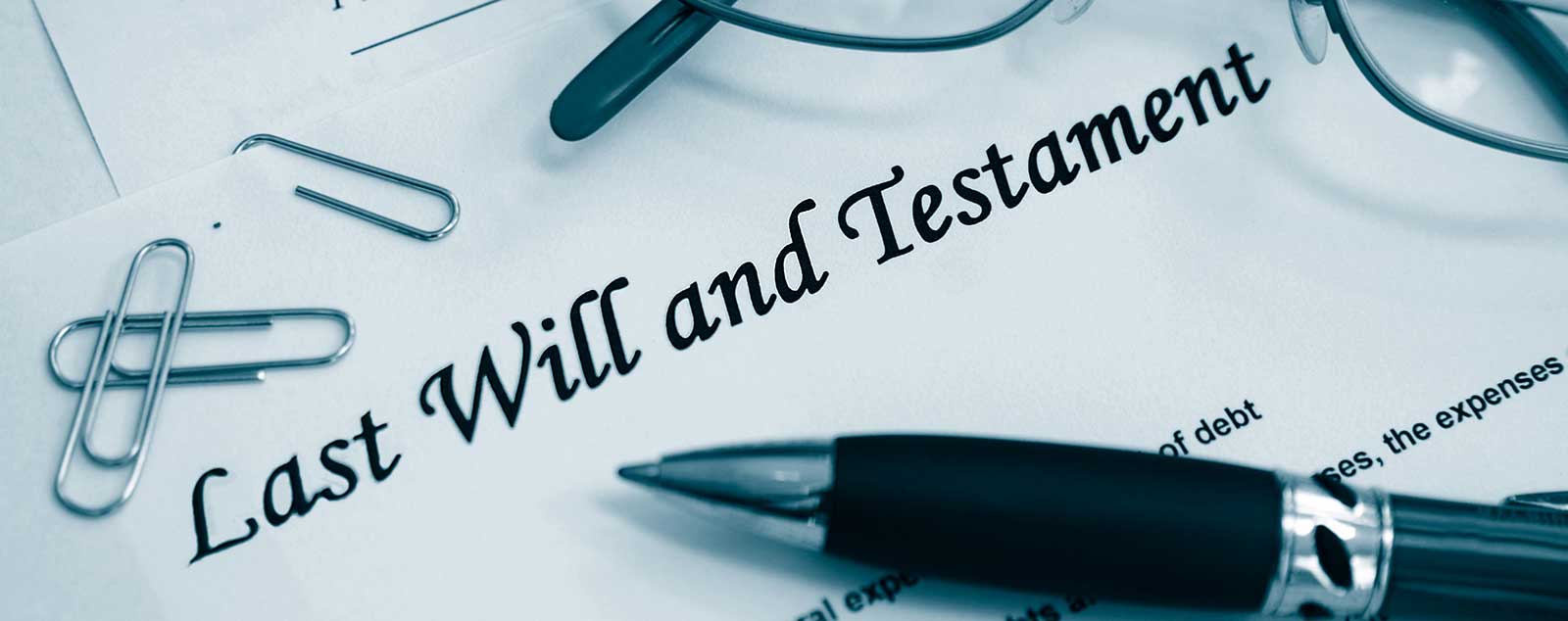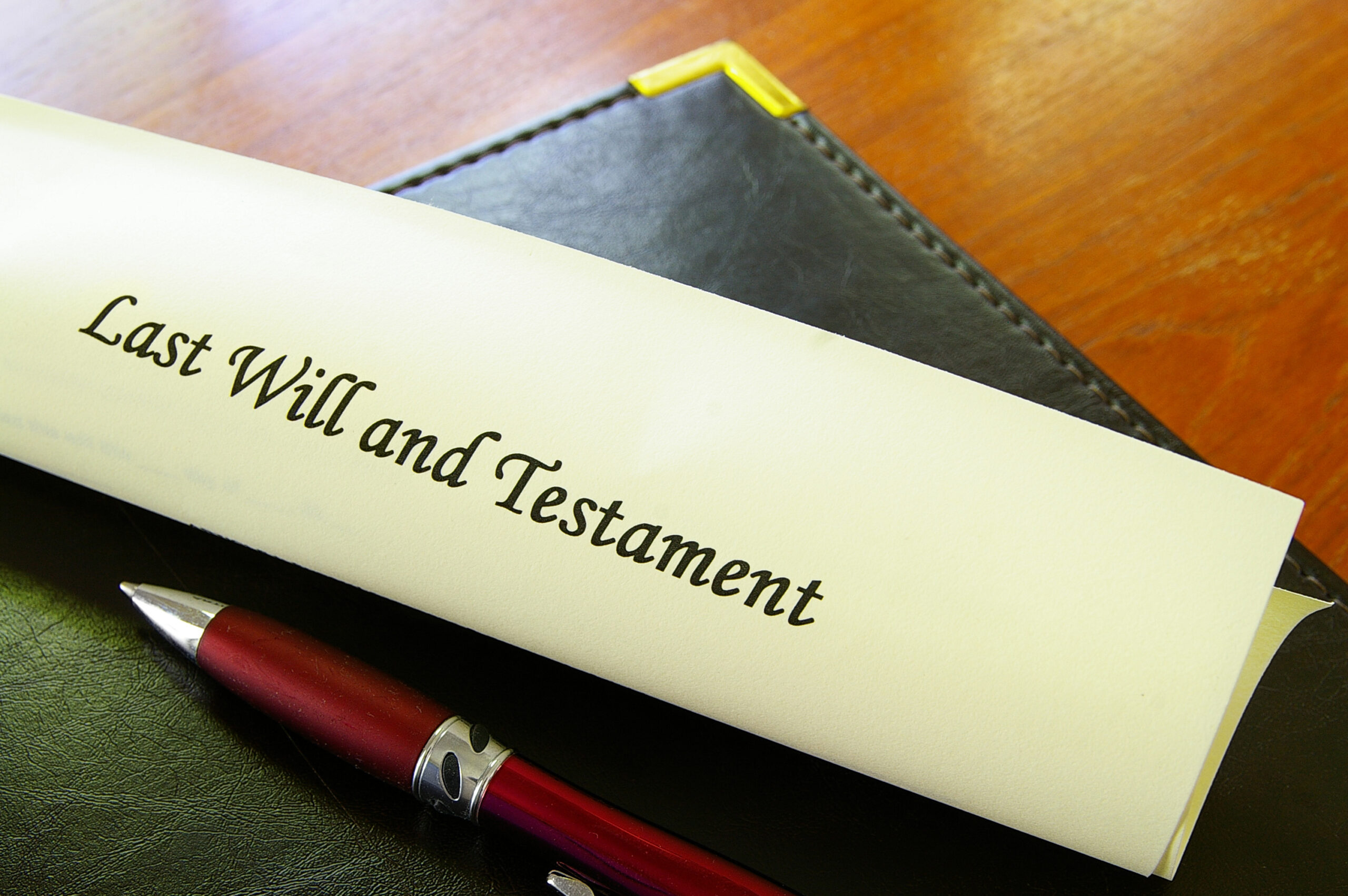亲人的去世是一件悲痛和困难的事情。然而,即使在悲伤的时候,亲人去世后,仍有几件事必须要做,包括聘请遗嘱认证律师来办理遗嘱认证以及解决死者的财务和法律问题。
当一个家庭成员死亡时,您需要完成八项重要的法律事务,从报告死亡到管理遗产和处理继承权。 这八项重要的法律事务如下:
- 获取死因证明(CCOD)。
- 死亡登记。
- 安排葬礼。
- 通知这些机构(包括公积金局)。
- 检查您的亲人是否留下遗嘱。
- 申请遗嘱认证,了解遗嘱执行人的职责,以及资产如何分配给合法的受益人–以及按什么比例分配。
- 管理遗产并分配遗产。
- 向受益人说明情况并结束此事。
请继续阅读,了解有关这些步骤的更多信息。
1.获取死因证明(CCOD)
当某人在新加坡死亡,家庭成员需要获得《死因证明》。您需要这份文件来获得死亡证明,这是葬礼或火葬所需要的。
如何获得死因证明取决于您的亲人是在家里去世还是在医院去世。
如果死亡发生在家里
如果您的亲人是在家里去世的,您需要打电话给医生证明死亡。这可以是您的家庭医生或社区全科医生。如果您找不到医生,您可以报警。
如果是自然死亡且在家里去世,您可以让医生证明死因。然后,医生会在线签发《死因证明》。这样您就可以申请办理葬礼所需的死亡证明。但是,如果死因不明或非自然死亡,医生将不会签发《死因证明》,而是将此事提交给警方。
如果发生医生无法在线登记死亡的情况(例如,如果系统不可用),他们会签发手添文件,其被称为《死亡确认书》。医生稍后在能够访问系统时在线签发死亡证明且其随后会在 ICA 系统中自动登记。
如果死亡发生在医院
如果死亡发生在医院,医院的医生会在线登记死亡。
2.死亡登记
在新加坡,所有死亡(不论国籍)都必须在24小时内登记且在注册医生在线证明死亡后会自动注册。无需近亲到 ICA 登记死亡。死亡登登记后,您可以访问我的遗产下载并保存电子版证书。
在新加坡出现的死亡会在医生在线证明死亡后自动登记,无需近亲在登记处登记死亡。
对于死亡登记,近亲需向医生或医院出示逝者的身份证明文件(如 NRIC、FIN 卡片或护照)以顺利办理死亡证明。需提供如下信息以让医生开具死亡证明:
- 逝者姓名
- 逝者性别
- 逝者的身份证号码
- 逝者的出生日期
- 死亡日期
- 死亡时间
- 死亡地点/地址
- 死因
请注意,逝者的 NRIC 在登记死亡后会自动在 ICA 中失效。我们建议近亲在此情况出现后销毁逝者的 NRIC 以防误用。
3.安排葬礼
大多数人会请一位葬礼承办人来帮助安排。如果您想在组屋空地举行葬礼,您的葬礼承办人会先了解您所属的镇议会,然后向镇议会申请许可证。
有不同类型的葬礼安排需要考虑,如土葬或火葬。因此,在决定葬礼安排时,您必须考虑您亲人的宗教信仰、喜好和遗嘱中所述的愿望(如有)。
4.通知有关机构
- 任何雇主 — 通知您亲人的雇主,并查明是否有任何应付给您亲人的工资或未付款项。
- 银行–通知死者持有账户的银行。考虑一下如何处理每月的自动付款和 GIRO 扣款。通知信用卡公司。只有当您是死者的遗产执行人或遗产管理人,并能出示遗嘱认证书或遗产管理书时,银行才会允许您提取死者的钱。请参阅下文关于遗嘱认证程序的关键重要性以及如何从遗嘱认证律师处获得遗嘱认证。
- 保险公司 — 大多数保险公司会在出示死亡证明后赔付少量款项。然而,大部分的保险金只有在出示遗嘱认证书或遗产管理书后才会得到赔付。
- 公积金局 — 通知公积金局,以便公积金局能够将公积金款项发放给合法受益人。
关于公积金的补充说明
如果您的亲人已申请公积金提名,他们的公积金储蓄会按提名表格分配给被提名人。公积金局将在接到死亡通知后的15天内就公积金款项的分配与被提名人联系。但是,如果没有提名,公共受托人将处理公积金储蓄、其他款项或资产,并根据无遗嘱法将其分配给死者的家属。
公积金资金的分配包括普通帐户、特别帐户、医疗储蓄帐户和退休帐户(如有)的余额。如果您的亲人没有获得公积金(CPF)提名,您亲人的公积金(CPF)储蓄将根据新加坡的无遗嘱继承法或穆斯林继承法转至公共受托人分配给家人。
5.检查是否留下有效的遗嘱
您需要检查一下死者是否留下了遗嘱。如果死者留下遗嘱,被指定为遗嘱执行人的人必须申请“遗嘱认证”,成为死者遗产的执行人。
如果死者没有留下遗嘱,最亲近的家庭成员将不得不申请“遗产管理书”,成为死者的遗产管理人。
6.申请遗嘱认证
您现在进入了法律程序的一个重要部分。无论死者是否留下遗嘱,您的家人都需要负责死者的遗产,并将财产分配给合法的受益人。
要做这些事情,您需要聘请一位专业的遗嘱认证律师来帮助您获得遗嘱认证。如果死者留下财产要分配给受益人,那么遗嘱认证是必不可少的。
(a) 什么是遗嘱认证?
当一个家庭成员去世时,必须有人处理他们的“遗产”。简单地说,一个人的遗产就是他拥有的资产。这些资产必须分配给受益人。
资产可以由他们死亡时所拥有的金钱、财产和物品组成。
要处理他们在新加坡的遗产或资产,您必须申请遗嘱认证(如果有遗嘱)或遗产管理书(如果没有遗嘱)。要做到这一点,您需要一个专业的遗嘱认证律师的协助。
(b) 如果存在有效遗嘱–申请遗嘱认证
如果有一份有效的遗嘱,就会有一个人被指定为遗嘱执行人。遗嘱执行人是指在死者的遗嘱中指定的人,负责分配死者的遗产。
如果死者留下遗嘱,遗嘱执行人将必须申请遗嘱认证,并根据遗嘱分配死者的资产。
遗嘱执行人获得遗嘱认证后,会联络金融机构、政府机构、银行和其他机构,要求取得死者的资产。
(c) 与遗嘱认证律师见面时需要哪些文件?
在与遗嘱认证律师见面之前,遗嘱执行人应准备并携带:
- 死者的死亡证明原件
- 死者的遗嘱原件
- 遗嘱执行人的身份证明文件(如 NRIC 或护照)
- 死者拥有的所有资产和负债的清单,连同证明文件(如银行对账单、保险单、税务发票等)
- 伊斯兰教法院出具的穆斯林继承证书(如适用)
(d) 申请遗嘱认证书的程序是什么?
遗嘱中指定的执行人必须向法院申请遗嘱认证书。遗嘱执行人将委托一位专业的遗嘱认证律师帮助他们完成这项工作。
如果死者的遗产价值在5,000,000新元及以下,遗嘱执行人将向家庭法院申请遗嘱认证书。然而,如果死者的遗产总值超过5,000,000新元,遗嘱执行人必须向高等法院家事庭申请。
申请遗嘱认证书并不简单,因为申请的步骤涉及许多文件,而且技术性很强。一般来说,申请遗嘱认证书有三个主要阶段。您的遗嘱认证律师将做以下工作:
- 申请遗嘱认证书
- 提交证明文件
- 提取遗嘱认证书
(e) 了解遗嘱执行人的职责
法律要求遗嘱执行人履行下列职责:
- 申请并提取遗嘱认证书。
- 根据遗嘱安排死者的葬礼。
- 收集一份死者所有财产的准确清单。
- 清偿死者的未缴税款、贷款和债务。
- 按照遗嘱将资产分配给受益人。
- 遗嘱执行人必须诚实行事。根据法律规定,他们必须对死者的遗产分配负责,并可能因未履行职责而被追究责任。
(f) 无效遗嘱–申请遗产管理书
如果死者未立遗嘱,死者的家庭成员必须申请“遗产管理书”,成为遗产的“管理人”。
根据《无遗嘱继承法》,遗产管理书赋予遗产管理人管理和分配死者财产的法律权力。有了遗产管理书,遗产管理人将与各机构联系,要求获得死者的资产。
(g) 谁可以成为遗产管理人?
根据《无遗嘱继承法》,遗产管理人由法院指定,负责管理和分配死者的遗产。
一般来说,死者的任何直系亲属都可以申请遗产管理书。
根据《无遗嘱继承法》,下列人员有权按照优先顺序申请遗产管理书:
- 配偶
- 子女
- 父母
- 兄弟姐妹
- 侄子和侄女
- 祖父母
- 叔叔和姑姑
根据优先顺序,如果死者的子女希望成为遗产管理人,死者的未亡配偶必须放弃其申请遗产管理书的权利。
(h) 与律师见面时,您需要哪些文件?
在与律师见面之前,遗产管理人或家属应该准备并携带:
- 死者的死亡证明原件
- 死者近亲的死亡证明原件(如适用)
- 家庭成员的身份证明文件(如 NRIC 或护照)
- 死者拥有的所有资产和负债的清单,连同证明文件(如银行对账单、保险单、税务发票等)
- 伊斯兰教法院出具的穆斯林继承证书(如适用)
(i) 申请遗产管理书的程序是什么?
申请遗产管理书并不简单,因为涉及许多步骤,而且过程非常具有技术性。一般来说,您的遗嘱认证律师会通过以下方式帮助你申请遗产管理书。
- 申请遗产管理书
- 提交证明文件
- 提取授权书
(j) 遗产管理人的职责是什么?
遗产管理人应履行下列职责:
- 列出死者所有资产的准确清单。
- 清偿死者的未缴税款、贷款和债务。
- 根据《无遗嘱继承法》将资产分配给受益人。
遗产管理人必须诚实行事,对死者遗产的分配负责,如果不履行职责,可能会被追究责任。
(k) 没有遗嘱时的分配规则是什么?
对于非穆斯林来说,遗产的分配将根据《无遗嘱继承法》进行。该法规定:
- 谁是合格的受益人,以及
- 每个受益人将获得的遗产比例。
如果没有遗嘱,《无遗嘱继承法》规定,遗产应按以下方式分配:
| Surviving beneficiaries | Distribution |
| Only spouse | Spouse is entitled to the whole of the estate. |
| Only parents | Parents are entitled to the whole of the estate, to be divided equally between them. |
| Spouse and children | Spouse is entitled to half of the estate. The other half is distributed equally amongst the children. |
| Only children | Children are entitled to the estate, to be split equally amongst them. If any of the children is deceased, the grandchildren can claim their parent’s share accordingly. |
| Spouse and parents | Spouse is entitled to half of the estate. The other half is distributed equally between the parents. |
| Only brothers and/or sisters | Brothers and sisters are entitled to the estate, to be split equally amongst them. If any brother or sister is deceased, then the children of any deceased brother or sister shall be entitled to such share accordingly. |
| Only grandparents | Grandparents are entitled to the estate, to be split equally amongst them. |
| Only uncles and/or aunts | Uncles and aunts are entitled to the estate, to be split equally amongst them. |
| None of the above scenarios apply | Government is entitled to the estate. |
7.管理遗产和分配遗产
一旦获得了遗嘱认证书或遗产管理书,遗嘱执行人就必须对资产进行管理,收集资产,偿还债务,并将其分配给受益人。为了完成这项工作,遗嘱执行人可能要做的一些事情包括:
- 房产:出售或转让房产。
- 银行:偿还银行贷款、信用卡并访问死者的账户。
- 车辆:解决车辆所有权问题。
- 账单:结清所有账单和税款。
- 债务:清偿所有债务。
- 保险:索要保险金。
- 订阅:关闭所有账户并取消订阅。
- 公用事业:终止或转移 PUB、电话和所有公用事业服务。
- 分配:将资产分配给受益人。
8.向受益人说明情况并了结此事
如果您是遗产执行人或遗产管理人,您应该向受益人说明所有资产都已被合理分配。
总结
处理亲人的去世是很困难的,通常家庭成员不知道在这段困难时期该做什么。了解如何处理死者的财务和法律事务,可以帮助您了结此事,继续生活。我们强烈建议您聘请一位专业的遗嘱认证律师,他可以指导您完成这一过程,并为您节省大量的时间和分担压力。
如果您需要帮助,请联系我们。
$1,590
面向遗产总额低于 50 万美元、无房产且无未成年的受益人
$2,590
面向遗产总额低于 300 万美元的情况
Frequently asked questions
v4 1
Are CPF savings included in the estate if there is no Will?
No. CPF monies are distributed separately. If the deceased made a CPF nomination, the CPF Board pays directly to the nominees. If not, CPF savings are paid out by the Public Trustee’s Office under the Intestate Succession Act.
Probate: What happens to CPF money that were used to buy property when someone dies?
CPF for Property (HDB Flats & Private Homes)
When CPF funds are used to pay for a property, the amount and its accrued interest do not need to be returned to the deceased's CPF account. This is a crucial point that helps protect surviving family members.
- The ownership of the property is determined by the title deed.
- If the property was held in joint tenancy, the surviving co-owner(s) automatically inherit the deceased's share, and no CPF refund is required.
- If the property was solely owned or is a tenancy-in-common, the deceased's share forms part of their legal estate and is distributed according to their will or the Intestate Succession Act.
Summary: On death, if CPF money was used for property purchase, there is no refund back to CPF. Instead, the property (or its sale proceeds) is distributed under the will (if there is one) or the intestacy rules, and you will require to obtain a Grant of Probate or Grant of Letters of Administration.
Other important points:
- CPFIS investments (unit trusts, shares bought with CPF) are not covered by CPF nomination. They belong to the estate and require probate/LOA.
- CPF LIFE bequests and unused annuity premiums are paid out via CPF nomination, not probate.
- DPS insurance payouts follow the insurer’s nomination rules. If no nomination was made, the payout falls into the estate.
Probate: What happens to CPF savings when someone dies in Singapore?
CPF savings (Ordinary, Special, MediSave, and Retirement Accounts, plus accrued interest) are not part of a person’s estate and do not go through probate.
- If there is a valid CPF Nomination, the CPF Board pays the monies directly to the nominees.
- If there is no nomination, CPF transfers the monies to the Public Trustee’s Office (PTO) for distribution under the Intestate Succession Act (for non-Muslims) or Muslim inheritance law (Faraid) (for Muslims).
Other important points to note:
- CPFIS investments (unit trusts, shares, etc. bought under CPFIS) are not covered by CPF nominations. They belong to the estate and usually require probate/LOA.
- Property bought with CPF is still an estate asset. Upon death, there is no refund back to CPF; the property (or sale proceeds) is handled as part of the estate.
- CPF LIFE bequests and unused annuity premiums are distributed under CPF nominations, not probate.
- DPS (Dependants’ Protection Scheme) insurance payouts follow the insurer’s nomination. If no nomination exists, the payout goes into the estate.
这个过程需要多长时间?
假设此事没有争议,通常大约需要 1 - 2 个月完成。
How much does Probate cost in Singapore?
Probate fees in Singapore depend largely on estate value and the number of assets involved. While some simple matters may start from around $1,500, many estates involving property or larger asset pools will fall in the higher fee range.
At PKWA Law, our pricing is aligned with the typical market range for probate work in Singapore, while providing the assurance of a clear, structured fee with no hidden charges.
Click here to view our affordable fixed-fee probate packages.
What documents are required to apply for Probate?
The executor must file with the Family Justice Courts:
Originating Summons to commence the application.
- A Statement with details of the deceased and the will.
- A Supporting Affidavit, including the death certificate and certified copy of the will.
- A Schedule of Assets, listing all assets and liabilities (in Singapore and abroad, if any).
These documents enable the Court to confirm the will’s validity and ensure proper distribution of the estate.
What is the difference between a Grant of Probate and Letters of Administration?
A Grant of Probate is issued when the deceased left behind a valid Will. The executor named in the Will applies for this Grant, which authorises them to collect the deceased’s assets, pay debts, and distribute the estate according to the Will.
By contrast, Letters of Administration (LOA) are required when the deceased passed away without a valid Will. The Court appoints an administrator—usually a spouse or close family member—to manage and distribute the estate. Distribution must follow the Intestate Succession Act (for non-Muslims) or Muslim inheritance laws.
The main difference lies in whether a Will exists: Probate follows the deceased’s wishes, while Administration follows statutory rules.
What must an executor or administrator do after receiving the Grant of Probate or Letter of Administration?
Once an executor (for a Grant of Probate) or an administrator (for a Grant of Letters of Administration) receives the court order, their legal duties begin immediately. In Singapore, they are legally responsible for collecting, managing, and distributing the estate according to the will (if one exists) or the Intestate Succession Act (if no will exists).
Here’s a clear breakdown of what they must do:
1. Secure and safeguard the estate
- Notify banks, insurers, and financial institutions of the deceased’s death.
- Ensure property, valuables, and accounts are protected (e.g. lock property, keep rental income separate).
- Close or freeze accounts until distribution.
2. Identify and collect all assets
- Bank accounts, insurance payouts, investments, and properties.
- Ensure all relevant institutions have received the Grant of Probate / Letters of Administration before releasing assets.
3. Settle debts and liabilities
- Pay off outstanding loans, taxes, credit cards, or funeral expenses.
- Ensure debts are discharged before distributing the estate - otherwise, the executor/administrator can be held personally liable.
4. Prepare an estate account
- Maintain a clear record of all monies collected, debts paid, and distributions made.
- Beneficiaries are entitled to request an account, so transparency is key.
5. Distribute assets
- f there is a valid will: distribute assets according to the terms of the will.
- If there is no will: distribute assets according to the Intestate Succession Act.
- Transfer ownership of property, release bank funds, distribute investments, etc.
6. Deal with disputes (if any)
- Executors must act impartially.
- If beneficiaries disagree, the executor should not take sides but follow the law, and may need to apply to court for directions.
7. Close the estate account
- Once all assets are distributed and debts are paid, the executor/administrator should provide a final estate account to beneficiaries.
- This formally discharges their duty.
Legal responsibility: Executors and administrators owe a fiduciary duty to act in the best interests of the beneficiaries. Mismanagement, delays, or self-dealing can expose them to personal liability and even legal action.


